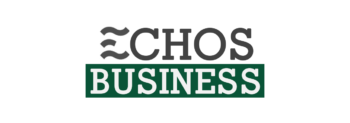Running a small business comes with many risks, from legal liabilities to property damage. Without the right insurance policies, these risks can threaten the survival of a business. Small business owners must be proactive in safeguarding their company against potential setbacks. This comprehensive guide outlines the essential insurance policies every small business should consider to protect their assets, employees, and operations.
Why Insurance is Crucial for Small Businesses
Insurance is a critical component of risk management for small businesses. It provides financial protection against unexpected events, such as accidents, lawsuits, or property damage, that could otherwise cripple a business. Without adequate coverage, a single incident can lead to significant financial losses, potentially forcing a small business to close its doors. In addition, some forms of insurance are legally required, depending on the nature of your business and location.
General Liability Insurance
General Liability Insurance is one of the most fundamental insurance policies that small businesses need. It protects against third-party claims of bodily injury, property damage, and personal injury (like defamation). Whether you run a retail store, a service-based business, or an online company, general liability insurance ensures that you are covered in case of accidents involving customers or vendors on your premises.
For example, if a customer slips and falls in your store, resulting in medical bills and legal claims, your general liability insurance would cover these costs. This policy is often required to secure leases or contracts with clients, making it an essential coverage for business operations.
Commercial Property Insurance
Commercial Property Insurance protects your business’s physical assets, including buildings, equipment, inventory, and furniture. This coverage is crucial in the event of natural disasters like fires, storms, or theft that result in damage to your property.
Whether you own or lease your office space, commercial property insurance ensures that you can repair or replace damaged property without bearing the entire financial burden. Some policies also cover business interruption, which compensates you for lost income during the time your business cannot operate due to property damage.
Workers’ Compensation Insurance
Workers’ Compensation Insurance is required by law in most states if you have employees. This insurance provides coverage for employees who are injured or become ill due to work-related incidents. It covers medical expenses, rehabilitation costs, and a portion of the employee’s lost wages.
Without workers’ compensation insurance, small businesses could face costly lawsuits if an employee gets injured on the job. Having this coverage not only protects your employees but also shields your business from legal and financial risks.
Professional Liability Insurance (Errors and Omissions Insurance)
Professional Liability Insurance, also known as Errors and Omissions (E&O) Insurance, is essential for service-based businesses and professionals who provide expert advice or services. This coverage protects against claims of negligence, mistakes, or failure to deliver services as promised.
For instance, if a consultant provides advice that leads to financial loss for a client, the client may file a lawsuit for damages. Professional liability insurance would cover legal fees and settlements, ensuring that your business can continue operating despite potential litigation.
Business Owner’s Policy (BOP)
A Business Owner’s Policy (BOP) is a convenient package that combines General Liability Insurance and Commercial Property Insurance into one comprehensive policy. Small businesses often benefit from a BOP because it provides broader coverage at a lower cost than purchasing individual policies separately.
BOPs are ideal for small businesses that want to streamline their insurance needs while ensuring they are protected against common risks such as property damage, theft, and liability claims. Depending on your business type, additional coverages like business interruption or cyber liability can also be added to a BOP.
Cyber Liability Insurance
In the digital age, small businesses are increasingly vulnerable to cyberattacks, data breaches, and other online risks. Cyber Liability Insurance is designed to protect businesses from the financial fallout of cyber incidents, including the costs of notifying affected customers, recovering compromised data, and defending against legal claims.
Whether you store customer information, handle online transactions, or use digital tools in daily operations, cyber liability insurance is essential to safeguard your business from growing online threats.
Commercial Auto Insurance
If your business owns vehicles or if employees use their personal cars for business purposes, Commercial Auto Insurance is necessary. This policy provides coverage in the event of accidents, property damage, or bodily injury involving business-owned or operated vehicles.
For businesses that rely on deliveries, transportation services, or sales teams, commercial auto insurance ensures that you are covered if an accident occurs during work-related travel. Personal auto insurance often does not cover vehicles used for business purposes, making commercial auto insurance a crucial consideration for businesses on the move.
Product Liability Insurance
Product Liability Insurance is essential for businesses that manufacture, distribute, or sell products. This policy protects your business from claims related to defective products that cause injury or property damage to consumers.
For example, if a product malfunctions and injures a customer, your business could be held liable for medical expenses and legal damages. Product liability insurance provides the necessary protection to cover these costs, ensuring that your business can survive potential lawsuits.
Conclusion
Every small business faces unique risks, and having the right insurance policies in place is crucial for long-term success. From protecting your physical assets with commercial property insurance to defending against lawsuits with general liability and professional liability coverage, each policy plays a key role in safeguarding your business. By understanding and investing in essential insurance policies, small business owners can focus on growth with the confidence that they are prepared for unforeseen challenges.



